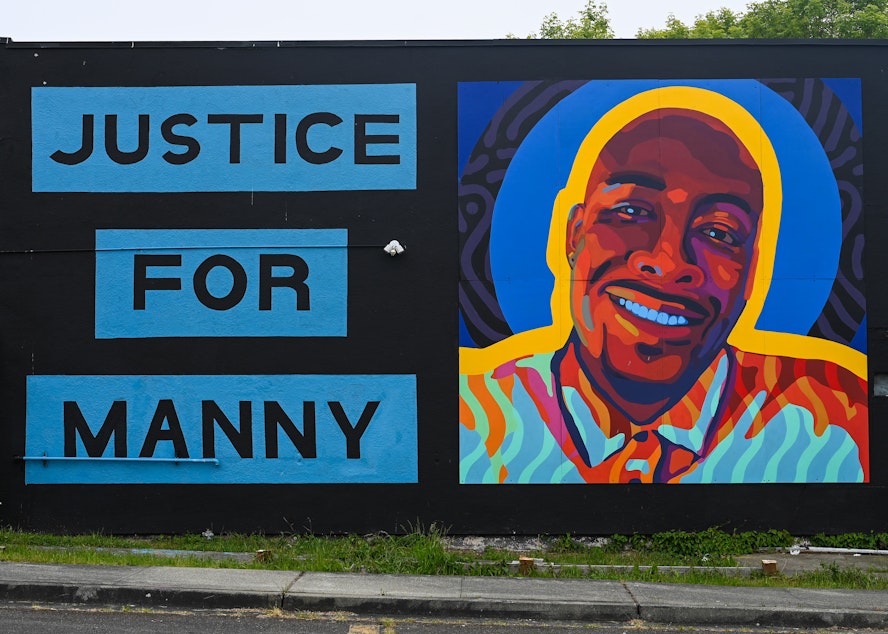Violent restraint killed Manny Ellis, medical expert testifies in Tacoma police officers' trial

Jurors continue to hear testimony this week in the trial of three Tacoma police officers charged in the March 2020 death of Manuel Ellis, a Black man who died after being restrained by police.
So far, jurors have heard from Ellis’ sister and mother, eyewitnesses to Ellis' encounter with police, who have contradicted police accounts of what happened the night Ellis died, and outside experts.
One such expert is Dr. Roger Mitchell, a forensic pathologist and former chief medical examiner for Washington, D.C. On Monday, Mitchell wrapped up two days of testimony, sometimes marked by tense exchanges with lawyers for the officers.
Mitchell, who has presided over thousands of autopsies, agreed with the basic conclusions of former Pierce County Medical Examiner Dr. Thomas Clark, that Ellis died due to a lack of oxygen as a result of physical restraint by police.
Officers Matthew Collins and Christopher Burbank are charged with second-degree murder, and officer Timothy Rankine is charged with first-degree manslaughter in the case. All have pleaded not guilty and remain on paid leave.
Lawyers for the officers argue that Ellis’ death was a result of high levels of methamphetamine in his system and a pre-existing heart condition.
Mitchell agreed with Clark’s findings that both were likely contributing factors in the death, but Mitchell was clear in his testimony that the interaction with police was what he considered the main cause.
“He has the level of methamphetamine, he has the dilated heart. He’s walking home at that point and the efficient, intervening cause is the violent altercation and subdual — it’s him being beat up that’s leading to his death,” Mitchell said.
“To me, it’s clear.”
Mitchell also testified that when a drug overdose is diagnosed as the cause of death, it should be in the absence of any other major cause of injury. In a later exchange with Brett Purtzer, one of the lawyers representing officer Burbank, Mitchell reiterated his conclusion.
“The fight is what killed him,” Mitchell said.
Purtzer fired back.
“The fight’s not what killed him. He killed himself by resisting police officers,” he said.
The statement from Purtzer was met with an objection from the prosecution that was upheld.
Lawyers for the officers questioned Mitchell at length about his findings and appeared to question his objectivity in the case.
Mitchell is a self-described advocate physician. As a Black physician, he has placed importance on creating better health outcomes for Black people, he said. Mitchell also has a podcast about in-custody deaths, and recently published a book on the same topic.
Defense lawyers also questioned Mitchell about his compensation as an expert witness for the prosecution. Mitchell said he would likely be paid a total of up to $40,000 for his work on the case. It is not uncommon for the prosecution in criminal cases to retain and compensate outside experts.
Beyond their questioning of Mitchell’s conclusions, lawyers for the officers also sought to distance their clients from some of the specific actions that could have contributed to Ellis’ lack of oxygen, including applying pressure to Ellis’ back after he was restrained with both handcuffs and a hobble strap, and covering his head with a spit hood. They have pointed to other officers at the scene who are not on trial.
The case is the first test of a new legal standard passed by Washington voters in 2018 that makes it easier to prosecute police who use deadly force.
The trial continues Tuesday with testimony from an audio expert.
RELATED: This Auburn cop killed 3 and injured others. His department didn't stop him — outsiders did

